World Environment Day
Posted in: About Anera, Days of Observance
First established by the United Nations in 1972, World Environment Day has become a global event promoting awareness and action to protect our environment. Celebrated every year on June 5th by civil society in over 140 countries, the day is an occasion to coordinate advocacy for environmental causes.
Making Peace with the Land 2024: Our Land. Our Future. We are #GenerationRestoration.
This year, the celebrations will be hosted by Saudi Arabia, and will focus on land restoration, halting desertification and building drought resilience. The goal is to make this happen through reforestation, reviving water sources and restoring soil. Recognizing that it is impossible to turn back time, the theme focuses on how to rehabilitate water and soil as the connective tissues of the earth.
At Anera, however, it is impossible to discuss the environment without bringing up Gaza and southern Lebanon. Constant airstrikes and the impact of chemicals on the water, air and soil are damaging the connective tissues that this day is advocating for. It is certainly impossible to turn back time, but it is not too late to prevent further environmental damage from happening.
In Gaza, bombings since October have flattened around 62% of the buildings, releasing hazardous materials into the soil, water and air. As of February 15, over 46% of all the cropland and trees in Gaza have been razed in an assault upon agriculture. People looking for firewood due to fuel shortages have been forced to cut down trees as well. Where once an ecosystem of farmland and orchards grew, now only dry soil remains.
Meanwhile, the pollution to the air in Gaza cannot be understated. Burning wood and plastic to cook food creates hazardous pollutants, while the use of cooking oil as gasoline and the dropping of bombs themselves release chemicals that go directly into the air. Besides the immediate sickness and discomfort this is causing to residents in Gaza, some sources have reported that such long-term impacts on the environment may be a potential form of ecocide.
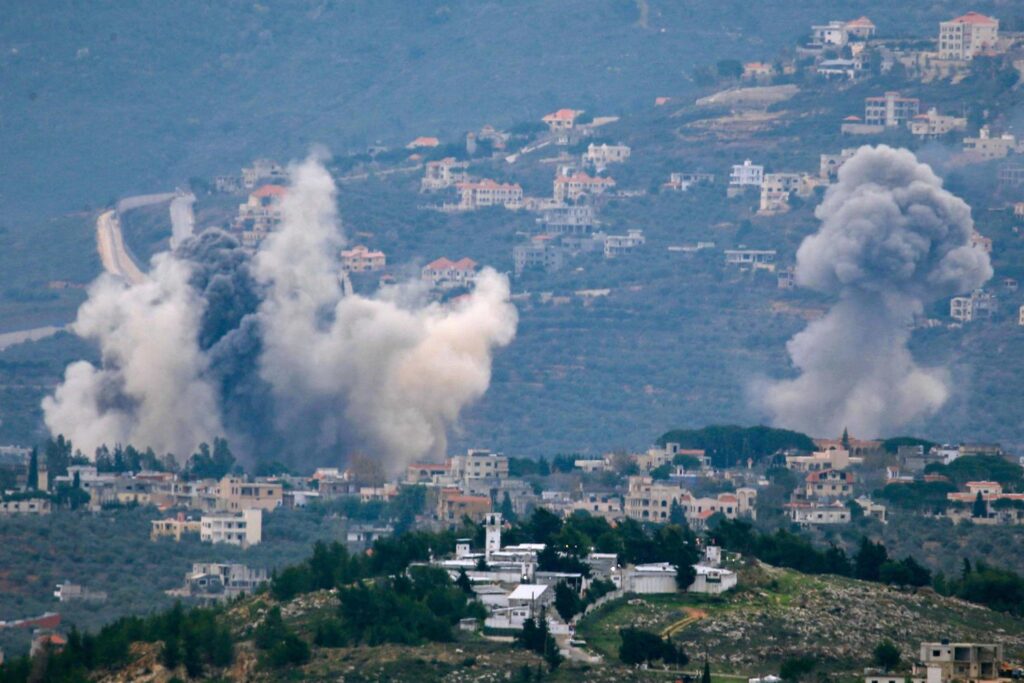

In southern Lebanon, many of the same issues from hostilities have emerged. In an especially concerning development, however, Israel has illegally used white phosphorus in its warfare. This chemical is prohibited under humanitarian law due to the long-term impacts it has upon the environment. The chemical ignites instantly upon contact with oxygen, sticks to subjects while burning, and can burn through bone. Compounds that remain unignited in water and soil can stay in the environment for thousands of years. In at least 120 instances, Israel has bombed southern Lebanon with the chemical, destroying 47,000 olive trees and other agricultural land.
The goal to make peace with the land is impossible without looking at the violence that is being presently inflicted upon it. To plant trees, resist drought and rehabilitate freshwater sources, the air, water and soil must be free from persecution. And, ultimately, the air, water and soil must be safe from environmental degradation for humans to safely exist. Through a ceasefire now, it may be possible to work towards the goals of World Environment Day in a tangible and sustainable way.
Protecting the environment in Gaza and southern Lebanon is not just an ecological necessity but a humanitarian imperative for the well-being and future of their people.
#OnThisLand: Anera promotes responsible, sustainable development in Palestine, Lebanon and Jordan
The theme for 2020 is biodiversity – an urgent global concern.
In Palestine, Lebanon and Jordan, the health of both humans and the environment suffers from water shortages, climate change and pollution. Urban areas grow more polluted as their populations increase. Farm fields lay fallow. And families struggle to get the water and other essentials they need to survive.
Since 1968, Anera has been delivering programs that help families make responsible and sustainable use of natural resources in the Middle East. Our programs reuse resources that would otherwise go to waste, respect land and water by using these natural riches in the most eco-friendly ways, and replenish the beauty of the land through responsible waste and water management and the use of renewable energy sources.
Environmentally sustainable programs Anera donors make possible
Using treated wastewater
Water is precious and scarce in the arid West Bank, but Palestinian municipalities discard wastewater every day, often paying a fee to Israel to do so. Anera has found a way to save and reuse wastewater on a major scale in two locations: in Jenin, where 70 farming families now can irrigate 740 acres of fodder and tree crops; and in Ramallah, a city of 40,000, where the municipality can now make use of 79,000 gallons of wastewater a day for fire-fighting and irrigating parks.
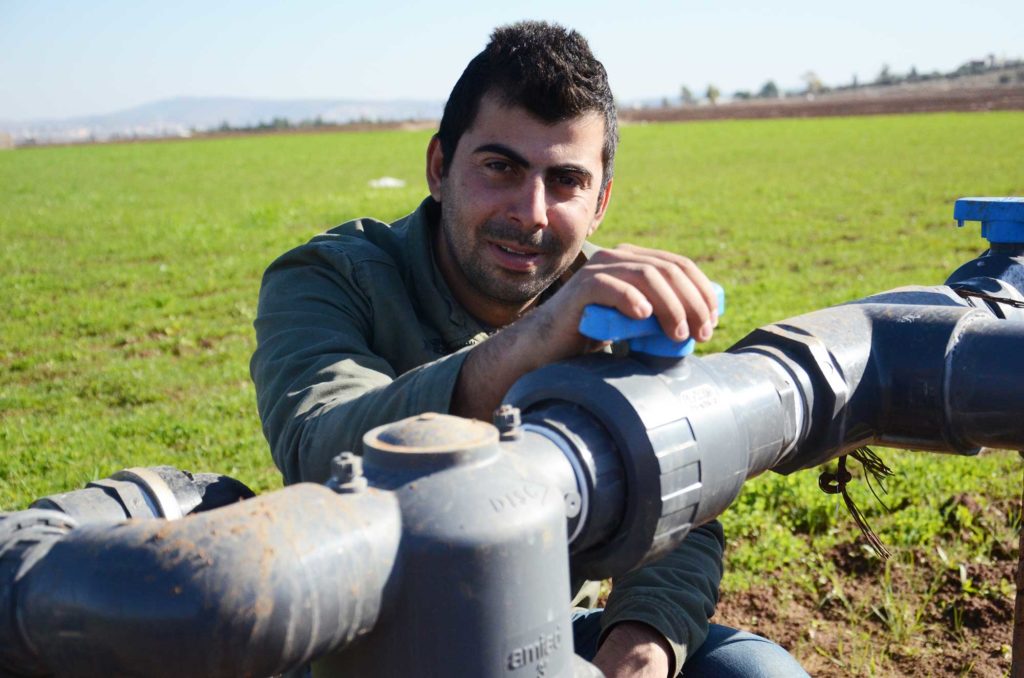

Desalinating water
Gaza’s drinking water’s chemical and biological pollution is due to high levels of salinity and fecal contamination. Most tap water in Gaza is unfit for human consumption. To address these problems, Anera recently installed new desalination units at two health care centers in Gaza, one that works with malnourished children and the other is a major hospital. The units Anera installed deliver 15,840 gallons of water daily to these centers.
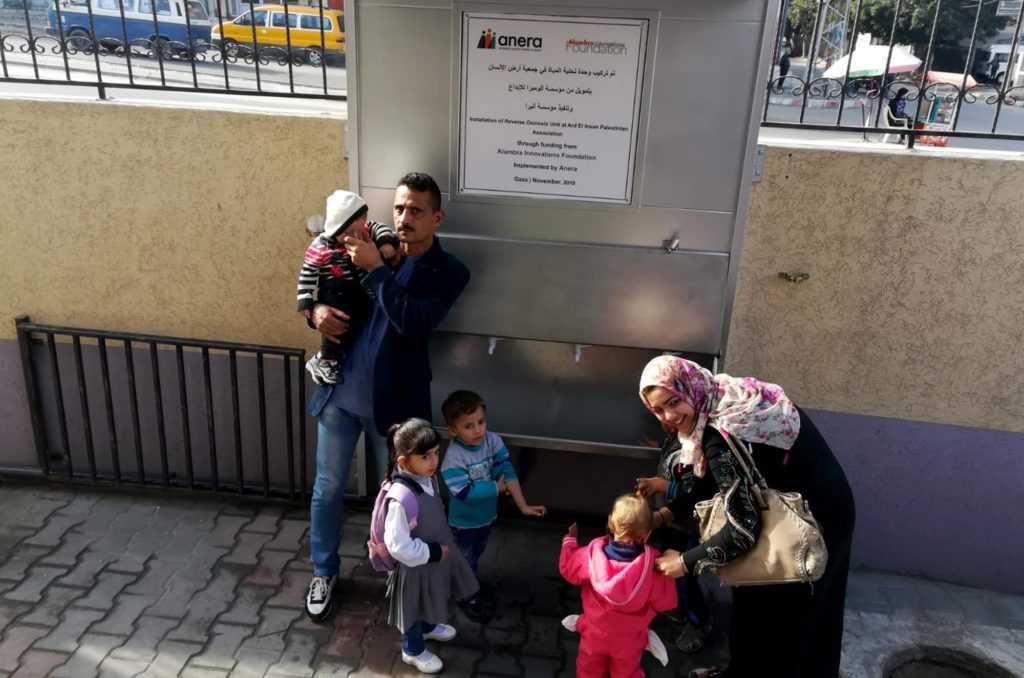

Recycling waste
The Lebanon trash crisis is instigating a youth-led response in many communities where Anera works, from refugee camps to to remote villages. Anera volunteers promote a culture of recycling and proper waste collection through awareness sessions, distribution of recycling bins, tree planting and litter clean-up. Anera has built three sorting facilities that prepare ~70 tons of waste every day for recycling and composting.
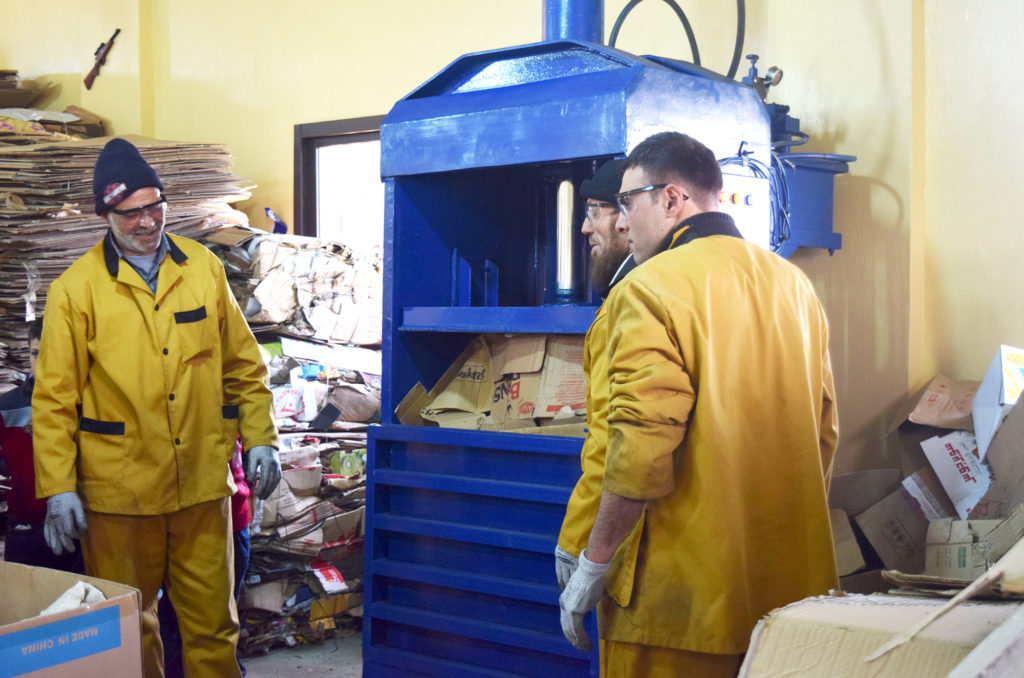

Cultivating land
Farming is one of the few ways for Palestinians to make a living in uncertain times. But the shortage of water in the region and outdated cultivation techniques challenge farmers. Anera works on a small-scale and sustainable level. We support agricultural cooperatives that help Palestinian farmers share resources. Over the past two year years, we built greenhouses on 184 Gaza family lands, helping farmers use water efficiently and grow crops appropriate to the soil, climate and season.
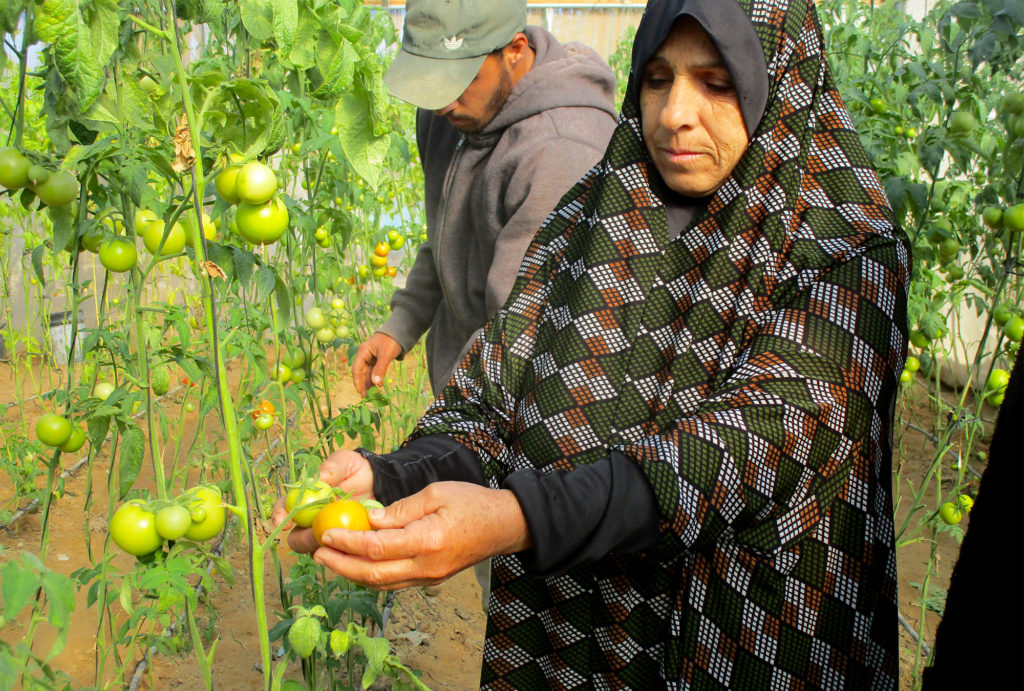

Installing solar panels
The availability of electricity can be hard to predict in the communities Anera serves. But, in resource-strapped Palestine and Lebanon, sunlight is one thing in ample supply. Anera is harnessing the sun’s rays to power buildings in both countries. We have installed solar panels on dozens of schools, community centers, hospitals and clinics, and waste-sorting facilities.


Establishing hydroponic gardens
Hydroponic cultivation can play an important role in meeting food security challenges. A small area can produce many fruits and vegetables at a very low cost with little more than PVC pipes and a pump to circulate a small amount of nutrient-rich water. Gaza, with its high population and scarcity of water, is in dire need of hydroponic agriculture. Anera just installed a hydroponic garden at a Gaza women’s center, providing fresh produce for its members.
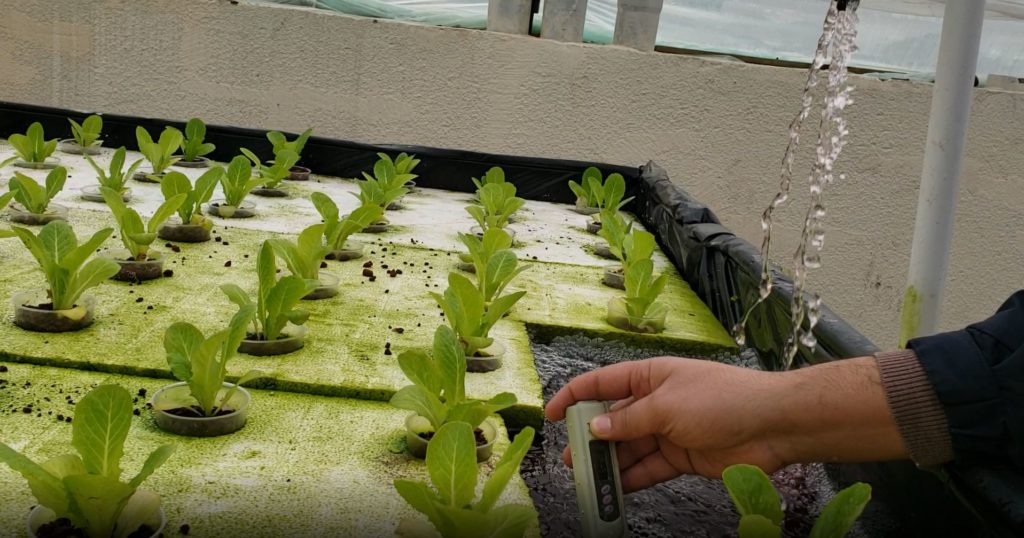

OUR BLOG
Related
Anera’s trainees had an amazing experience at the Maroun Chedid Academy during a recently ended pasta-making workshop as part of our hospitality training. From mastering the perfect dough to creating delicious sauces, they refined their culinary skills and prepared for…
